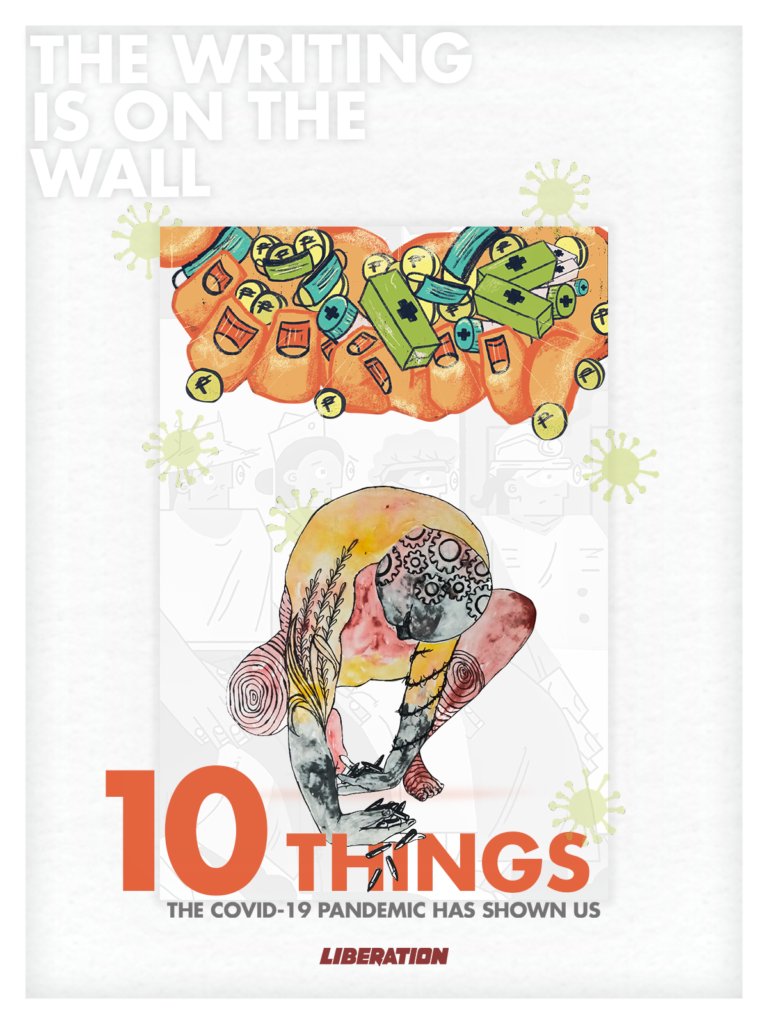The COVID 19 pandemic drives home the utter need for the country to stop sabotaging its economic development and instead push for national industrialization. In the containment measures against the pandemic, dozens of countries have initially banned the export of medical equipment and supplies and even food to prioritize their nationals. It should have given the local puppet government hard lessons about the danger of import dependency especially of goods that we could have produced on our own for our citizens’ needs such as testing equipment, PPE, face masks and face shields.
The containment measures adopted by various countries against the pandemic have disrupted economic and financial activities worldwide, immediately hitting the country’s export-based operations which are integrated into the extensive global value chains spawned by globalization. Meanwhile, the external factors that previously buoyed the stunted economy are also further weakened. The worldwide recession results in weaker overseas remittances and deployment of exported labor, less influx of BPOs and foreign-dominated manufacturing. In short, most “strong fundamentals” of the neocolonial economy are taking a beating, but the most hurt are the people who are hungry and unemployed, earning low to no income, enjoying low to no savings that could tide them over during the modified lockdowns, and facing health scares amid hunger, homelessness, without public health care and relief.
The puppet Duterte regime worsened the country’s indebtedness. Even during the pandemic when it has a clear excuse to suspend automatic debt servicing to focus on buttressing local production, it opted to comply with neoliberal recommendations such as continuously paying debts and refurbishing Ph credit worthiness. Instead of taking opportunities to invest in local productive sectors, the regime invests in borrowings which historically tied the country to become the advance capitalist countries’ dumping ground for their capital and products, and cheap source of labor and materials.
The Duterte administration further intensified the economy’s dependence on imports and integration as mere producers of certain cash crops, exporters of labor and raw materials, and assemblers in global production chains of monopoly capitalists. The Duterte regime is bent on removing the remaining protection of the local economy, as seen starkly in its repeated push for charter change, in going after protesters and critics of its policies, and in engaging the Communist Party of the Philippines and New Peoples’ Army in a dirty war to sabotage its ongoing programs of land reform and seeds of national industrialization in the countryside.
The results of responses to COVID 19 pandemic highlight how the country’s strategic direction for the economy should have been strengthening public social services, agriculture and Filipino industry, all the while ensuring ecological sustainability and social justice. Even more far-ranging economic changes such as genuine land reform and planned trade and production are being implemented in areas within the revolutionary zones.
As “Dutertenomics” creates more havoc to the economy, the more people look up to the National Democratic Front of the Philippines in laying down the fundamentals for a sound economy. The NDFP’s proposed Comprehensive Agreement on Social and Economic Reforms (CASER) which was presented and discussed in the scuttled NDFP-GRP peace talks is an economic blueprint that has come out of the insights and practices of several decades of revolutionary struggle.###

